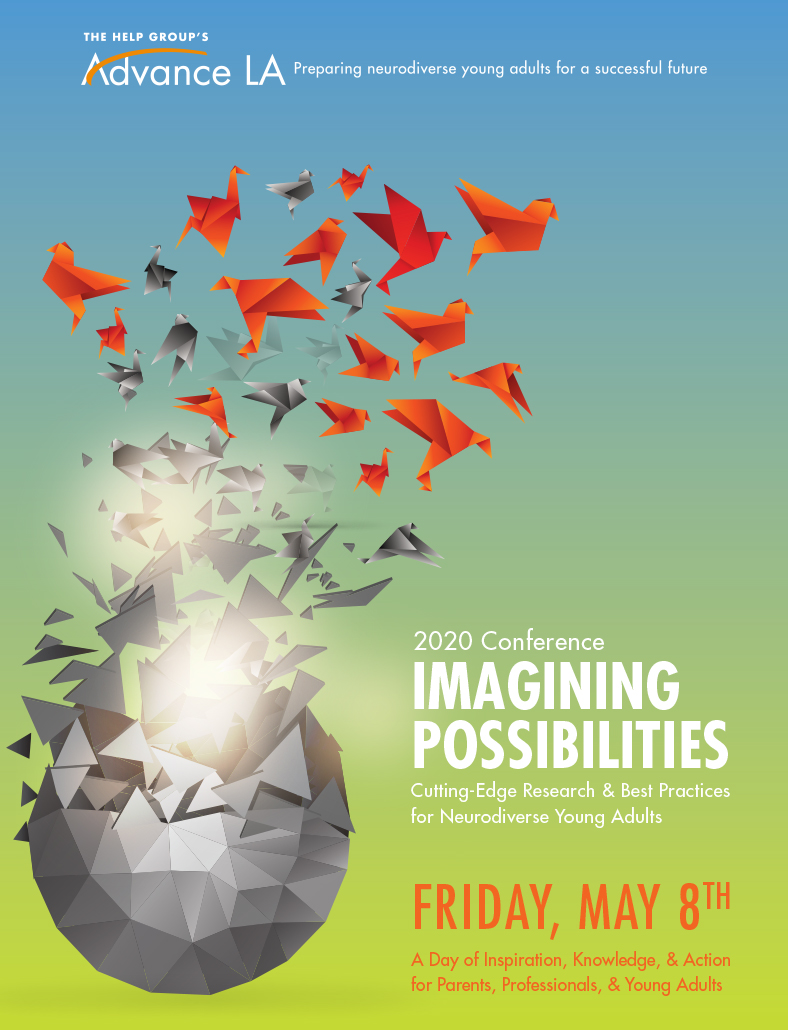Imagining Possibilities
The Help Group’s 2020 Advance LA Conference, Imagining Possibilities, features internationally prominent experts whose research and practice support young people with autism, learning differences and ADHD in their transition to college, the workplace, and beyond. This year’s conference theme focuses on the many strengths neurodiverse young adults can harness as they transition to adulthood.
The Help Group’s
Advance LA Conference
Cutting-Edge Research & Best Practices
for Neurodiverse Young Adults
*This event has been postponed due to the COVID-19 pandemic. Check back again for a new date.*
Friday, May 8th
8 a.m. to 4:45 p.m.
American Jewish University – Los Angeles, CA
Parents and professionals come together for a day of inspiration, knowledge, and action. This year’s theme focuses on neuro-diversity and the many strengths young adults can harness as they transition to adulthood. Attendees will have six sessions, including morning keynote, and 20 topics to choose from – see sessions here.
Conference is open to therapists, educators, clinicians, researchers, parents, graduates, and undergraduates. CE’s available – click here to learn more!
Keynote Speaker: Daniel Siegel, M.D.
Plus distinguished speakers in the areas of:
DBT ● Autism ● LGBTQ+ Support
Mood & Anxiety Disorders ● ADHD
Questions?
Email us at registration@thehelpgroup.org or call 818-779-5165.
Thank you to our media partner:

Presenters
KEYNOTE SPEAKER

Dr. Dan Siegel
Dr. Siegel is a clinical professor of psychiatry at the UCLA School of Medicine and the founding co-director of
the Mindful Awareness Research Center at UCLA. He is also the Executive Director of the Mindsight Institute which focuses on the development of mindsight, teaches insight, empathy, and integration in individuals, families and communities.
Dr. Siegel has published extensively for both the professional and lay audiences. His five New York Times bestsellers are: Aware: The Science and Practice of Presence, Mind: A Journey to the Heart of Being Human, Brainstorm: The Power and Purpose of the Teenage Brain, and two books with Tina Payne Bryson, Ph.D: The Whole-Brain Child, and No-Drama Discipline. His other books include: The Developing Mind, The Pocket Guide to Interpersonal Neurobiology, Mindsight, The Mindful Brain, The Mindful Therapist, and also with Tina Payne Bryson, Ph.D. – The Yes Brain and The Power of Showing Up. Dr. Siegel also serves as the Founding Editor for the Norton Professional Series on Interpersonal Neurobiology which contains over seventy textbooks.
For more information about his educational programs and resources, please visit: www.DrDanSiegel.com and www.mindsightinstitute.com
PRESENTERS
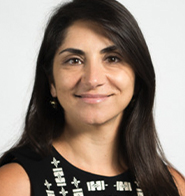
Dr. Hala Annabi
Dr. Annabi investigates diversity and inclusion initiatives aimed at recruiting, retaining, and advancing autistic technology professionals. She recently published the “Autism @ Work Playbook,” a resource for employers who are interested in developing autism hiring programs.
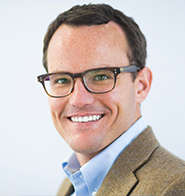
Phil Boissiere, LMFT
Phil Boissiere, LMFT, Silicon Valley ADHD specialist, author of Thriving with Adult ADHD, creator of the Beyond Focused for Adult ADHD video program, and Co-Founder of the Elite Focus Clinic. www.philboissiere.com
Dr. Vindia Fernandez
Dr. Fernandez obtained her Ph.D. in clinical psychology from the University of Houston, where she studiied the neural underpinnings of dyslexia. She completed her internship and postdoctoral fellowship in the neuropsychology training program at the UCLA Semel Institute. As a recipient of the Ruth L. Kirschstein National Research Service Award from the National Institute of Health, Dr. Fernandez studied language and neurocognitive functioning in young adults with schizophrenia. During her time at UCLA, Dr. Fernandez also worked closely with Dr. Liz Laugeson in the UCLA PEERS Clinic running groups for parents of adolescents and young adults on the autism spectrum, and other neurodiverse youth.
In 2017, Dr. Fernandez founded the Center for Pediatric Neuropsychology to address the growing need for culturally and linguistically appropriate evaluations for Latino children. Dr. Fernandez is currently a pediatric neuropsychologist in the Hispanic Neuropsychiatric Center of Excellence at the UCLA David Geffen School of Medicine; she teaches assessment in the Educational Therapy program in the CSUN Michael D. Eisner College of Education; and she continues to provide individualized social skills training using the UCLA PEERS model in her private practice.
Carissa Gallardo, M.A., LMFT
Carissa Gallardo, a licensed Marriage and Family Therapist, finished her Master’s degree in Clinical Psychology with a emphasis in Marriage and Family Therapy at Pepperdine University. Carissa holds a license in Marriage and Family Therapy in both California and Colorado. She has over 16 years of experience dealing with individuals, couples, and families in a variety of settings. She began her career working with a non-profit organization focusing on dealing with the parents and families of children with special needs. She also has considerable education and practical experience in Applied Behavior Analysis.
Carissa’s Dialectical Behavior Therapy (DBT) education and expertise started when working at an in-patient treatment facility. During her time there, she worked with a wide variety of clinical concerns and diagnosis’ applying Dialectical Behavior Therapy. She acquired on-site training and education in DBT. She is a skilled group therapist with experience leading groups a including DBT, CBT, and Seeking Safety, Mindfulness, Body Centered, and Experiential.
As the Director of the Intensive Outpatient, Outpatient and Alumni Program in an addiction treatment facility, Carissa was responsible for the day to day clinical oversight of the IOP/OP and Alumni Programs.
Carissa has worked in intensive outpatient care and private practice settings providing brief and long-term psychotherapy, psycho-education, and consultation to adolescents and adults, groups, couples, and families struggling with issues that include addiction, eating disorders, dual diagnoses, depression, anxiety, addictions, personality disorders, multicultural issues, and trauma.
Carissa’s hobbies include biking, running, swimming, hiking, reading and most of all spending time with her son. She is also thrilled to be a part of this dynamic and influential conference this year.

Sasha Ginsburg-Gutstein, LCSW
Sasha Ginsburg is an LCSW in the state of California and she holds a Masters Degree in Social Work from the University of Southern California. Currently, Sasha teaches at UCLA in the Department of Social Welfare, prior to which she spent four years working for the Department of Mental Health in Los Angeles County. She also worked at Cedars-Sinai Medical Center where she specialized in using Cognitive Behavioral Therapy and Dialectical Behavioral Therapy in treating clients. Sasha co-founded Westside DBT in 2010 and currently works in the West Los Angeles and Studio City offices. Sasha is intensively trained by Behavioral Tech in Dialectical Behavioral Therapy.
Through the process of dialectics and mindfulness, she works with her clients to uncover their inherent skills and improve their overall quality of life. Working collaboratively is crucial in this therapeutic process and in the discovery of short and long-term goals.
She has a specialty and extensive experience working with individuals and personality disorders, relationship issues, depression, anxiety, and substance abuse.
Finn Gratton, LMFT, LPCC
Finn V. Gratton, LMFT, LPCC is a somatic psychotherapist who works at the intersections of trauma, neurodiversity, and sexual and gender minorities. They are the author of Supporting Transgender Autistic Youth and Adults. Finn identifies as autistic and non-binary transgender.
Amy Jane Griffiths, Ph.D., NCSP
Amy Jane Griffiths is a licensed psychologist and Assistant Professor of Clinical Counseling in the Attallah College of Educational Studies at Chapman University. Her research and clinical work focus on improving educational and employment outcomes for individuals with exceptional needs.

Rabbi Sherre Hirsch
Sherre Hirsch is a rabbi, author and spirituality expert dedicated to empowering individuals to be their own most trusted spiritual guides. She currently serves as Hillel International’s Senior Rabbinic Scholar, focused on developing a culture of wellness and spirituality on 550 campuses worldwide. She is also the Spirituality Consultant for Miraval Properties, where she organizes retreats and leads workshops focused on grief, healing, and spirituality.
Hirsch launched her rabbinic career as the first woman rabbi at Sinai Temple, Los Angeles’s largest and oldest conservative synagogue. During her eight-year tenure on the pulpit, she was instrumental in the founding of Friday Night Live and other nationally-recognized innovative programming.
Since then, she has published two books with Random House – We Plan, God Laughs: What to Do When Life Hits You Over the Head, an Amazon top 100 in all books, and Thresholds: How to Thrive Through Life’s Transitions to Live Fearlessly and Regret-Free – a Vanity Fair “Best Type.” She is the co-founder of NotAlone, a mobile app empowering 18-24 year-olds to connect consciously and enhance their social, emotional well-beings. Hirsch also served as the Spirituality Consultant for Canyon Ranch Properties for 15 years and was honored as Jewish Women International Women to Watch.
Hirsch’s modern approach to ancient Jewish wisdom and relatable framework for spirituality has made her a sought after speaker, teacher, consultant, counselor, and national media contributor. She is married to Dr. Jeffrey Hirsch and resides in Los Angeles with her four children, foster son and rescued dog, Latke.
Pam Jacobson, M.A., LMFT
Pam Jacobson is a licensed Marriage and Family Therapist and holds a Masters Degree in Counseling Psychology from the University of San Francisco. Over the last 10 years, her experience has ranged from working with adult dually diagnosed patients at Saint Helena’s Behavioral Health Hospital in Vallejo, California, to most recently working as a Dialectical Behavioral Therapist at Westside DBT. Pam has received training in both Cognitive Behavioral Therapy and Dialectical Behavioral Therapy (DBT) and continues to further her knowledge of the DBT model through extensive trainings offered at Behavioral Tech, Marsha Linehan’s organization where DBT was developed.
In private practice Pam specializes in working with adults and adolescents struggling with impulse control, self-harming behaviors, anxiety, mood disorders and substance abuse. She is also well-versed in facilitating DBT skills training groups. Pam has embraced the DBT model because of its balance between validation and acceptance with commitment to change. Working in a supportive and collaborative style with her clients she introduces the DBT skills and structure. Pam is honored and delighted to be a part of 2020 Advance LA conference.
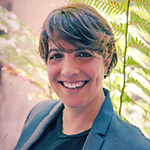
Erin Lotz, LCSW
Erin Lotz is an LCSW and holds a Masters Degree in Clinical Social Work from the University of Southern California. Erin has been part of the well-respected team of Psychotherapists and Psychiatrists at Cedars-Sinai Medical Center’s Department of Psychiatry and Behavioral Neurosciences in Los Angeles and continues to be a trusted psychotherapist and teacher. Outside of Westside DBT of which she is the Founder and Clinical Director, Erin has a private practice, www.erinlotz.com, specializing in Mindfulness Psychotherapy. Erin has extensive experience working with adolescents and adults.
Erin specializes in Dialectical Behavioral Therapy and is trained in Cognitive Behavioral Therapy working with individuals and groups. Erin provides treatment for a variety of mood, anxiety, and personality disorders, as well as difficulties with addiction, impulsive behaviors, and chronic/persistent feelings that cause great amounts of suffering. Erin believes in each individual creating a quality of life worth living.
Erin is intensively trained in Dialectical Behavioral Therapy. She was first introduced to DBT in 2000 at a Coping with Chaos training by Marsha Linehan, Ph.D., the original developer of DBT. Since then, Erin has completed DBT 2 trainings and completed the Intensive Training through Behavioral Tech.
Eva Mendes, LMHC, NCC
Eva Mendes is a sought after Asperger/autism specialist, author, psychotherapist and couples’ counselor in the Boston area. Eva works with clients nationwide and internationally both in her Boston office and via video conferencing. Her clients usually are couples where one or both partners have Asperger Syndrome (diagnosed or suspected), women, young adults, and autistic LGBTQ individuals as well. Her clients include: adults with Aspergers/autism, ADHD, Nonverbal Learning Disability, and gifted individuals. She began training in autism spectrum disorder and related profiles from the very beginning of her career at the Asperger/Autism Network in Watertown, MA. Eva is the author of two books: Marriage and Lasting Relationships with Asperger’s Syndrome and Gender, Sexuality and Autism: Voices from Across the Spectrum. She also authors the blog, Heart of Autism, on Psychology Today. Her website is www.eva-mendes.com.
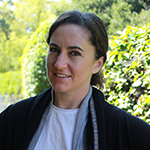
Jenara Nerenberg, M.S.
Jenara Nerenberg is a journalist and founder of The Neurodiversity Project, an event series and community platform hosting bestselling authors in science and medicine who push for innovation in research and advocacy. She is a professional interviewer and writes for the UC Berkeley Greater Good Science Center, Garrison Institute, Susan Cain’s Quiet Revolution, Elaine Aron’s HSP, and elsewhere. She is an alum of CNN, Fast Company, UC Berkeley, and the Harvard School of Public Health and is the author of the forthcoming book, Divergent Mind, addressing empathy and gender bias in mental health. You can find her on Twitter and Facebook, subscribe to The Neurodiversity Project newsletter for event announcements, or contact her directly on her website.
M. David Rudd, Ph.D., ABPP
David Rudd received his B.A, from Princeton University and his M.A. and Ph.D. degrees from the University of Texas-Austin. He completed post-doctoral training at the Beck institute under the direction of Dr. Aaron T. Beck, He is a licensed and board certified psychologist with extensive clinical experience, with a particular focus on the treatment of suicidality. With over 225 publications and 12,000 citations, he has completed multiple randomized clinical trials targeting suicide attempters, His most recent clinical trial resulted in the most significant post-treatment gains of any intervention to date, His most recent book, is Brief Cognitive-Behavioral Therapy for Suicide Prevention, published by Guilford.
Patricia Speelman, M.A., LMFT
Patricia Speelman has worked in the Mental Health Services industry for 25 years. She received her Master of Arts degree in Psychology from Chapman University and is a Licensed Marriage and Family Therapist in California.
Currently she is the Division Director of the Didi Hirsch Suicide Prevention Center where she oversees the Crisis Line, Bereavement Services, Survivor of Suicide Attempt programs, Training and Outreach, the Volunteer Training Program, Speakers Bureau, and Grants. The Crisis Line received over 130,000 calls, text and chats in 2019 and their SOSA Manual has been downloaded over 1800 times by agencies/mental health workers in all 50 states and 36 countries around the world.
Previously, she was the Director of a Partial Hospitalization and Outpatient Psychiatric program for a 200 bed hospital in Long Beach, California. During her 14 year tenure at the hospital, she was Chair of the Suicide Risk Assessment team, responsible for the development of the Suicide Risk and Assessment Policies and Procedures for all Hospital departments, responsible for developing the assessment tools, competencies, protocols, and providing education and training for all Hospital staff regarding Suicide Risk and Assessment.
Throughout her career in Mental Health she has given numerous presentations on the topic of Suicide Prevention, Assessment, and Intervention at Conferences (NatCon and AAS) and elsewhere, both nationally and internationally.
Jim Varga, M.D., F.A.A.P.
Jim Varga is a board-certified physician specializing in the evaluation and treatment of children and teens with developmental disabilities and mental health challenges. He is presently the Medical Director for the Palisades Neurodevelopment Center in Los Angeles, California where he works collaboratively with a team of testing professionals, therapists and OTs. Dr. Varga completed a post-doctoral fellowship at the UCLA Neuropsychiatric Institute (now the Semel Institute) where he was privileged to have trained with Dr. Denny Cantwell, a leader in the field of ADHD. Before spending over three decades in private practice, he served as a medical consultant for three local Regional Centers. While he recognizes the benefit that medications can provide for neurodiverse clients he values the importance of appropriate educational placement and encourages families to explore other interventions such as mindfulness training, cognitive behavioral therapy, and supportive family counseling where indicated.
He has supervised medical trainees in the learning disorder clinics at UCLA and at Cedar Sinai Hospital in Beverly Hills. Because of his March of Dimes sponsored post-doctoral training he is comfortable working with families on the Spectrum, clients with mood disorders, learning disabilities and ADHD. Most importantly he practices a personal and “hands on approach” for the children and teens that he sees with careful monitoring of psychotropic medications.
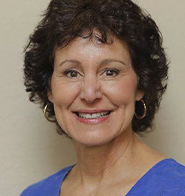
Mindy Werner-Crohn, M.D.
Mindy Werner-Crohn is a graduate of Harvard University and the University of California, San Francisco Medical School (UCSF). She is a board-certified psychiatrist who treats children, adolescents and adults in her Calabasas private practice, Blue Sky Psychiatry. She has been practicing psychiatry for over twenty-five years.
Dr. Werner-Crohn was one of the first psychiatrists in this region to provide TMS in her practice. TMS is a groundbreaking technology that has been approved by the FDA for treatment-resistant depression and OCD. New research on TMS holds out hope for treating a variety of disorders, including autism. She is currently the consultant for Community Psychiatry’s TMS centers in Calabasas and Simi Valley.
SPEAKERS FROM THE HELP GROUP
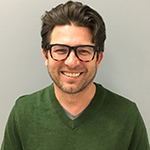
Jason Bolton, Psy.D.
Dr. Jason Bolton has over 25 years of experience working with children, adolescents, and families with histories of abuse and neglect, social-emotional challenges, and developmental disabilities including autism spectrum disorder and learning differences. He holds a B.A in Psychology from the University of Oklahoma, an M.S. in Applied Behavioral Studies from Oklahoma State University, and a doctorate in Clinical Psychology from the California School of Professional Psychology in Alameda.
He is The Help Group’s Vice President of Programs and previously served the agency as its Clinical Director and Chief Psychologist. In addition to clinical work, Dr. Bolton’s expertise includes effective leadership of diverse work groups, innovative program development, and responsible fiscal oversight of quality programs. He is a member of the Board of Directors and Finance Chair of the California Association of Private Special Education Schools and Agencies, known as CAPSES. Dr. Bolton is a proud father of triplet girls and, as a parent-consumer of developmental and special education services, frequently refers to his family as a glowing example of the power of early intervention.

Ellis Crasnow, Ph.D.
Ellis Crasnow, PhD, is a Los Angeles-based educator, innovator and entrepreneur engaged in transforming lifelong opportunities for special needs students. A pioneer in developing new teaching models for empowering students across the autistic spectrum, Dr. Crasnow is a specialist on issues surrounding STEM, technology and special needs. He holds a doctorate in philosophy from USC, with a focus on the philosophy of science. He is the Director of STEM Education at The Help Group, and Founding Director of STEM3 Academy. Dr. Crasnow is a frequent speaker at conferences, nationally and internationally, on the importance of STEM education, special education, emerging technologies and neurodiversity in the workplace.
In 2012, The Help Group began a pilot program at Village Glen High School, which Dr. Crasnow led. The success of that program and its expansion to include STEM infusion into the middle and elementary schools’ curriculum provided the impetus to start STEM³ Academy. Prior to teaching, Dr. Crasnow was a successful entrepreneur, and is an avid hiker and photographer. Dr. Crasnow is a frequent speaker at conferences, nationally and internationally, on the importance of STEM education and its benefit to those with social and learning differences.
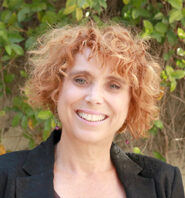
Laurie Stephens, Ph.D.
Dr. Stephens has recently returned to The Help Group as the Director of Program Development She previously served as the Help Group’s Director of Autism Spectrum Disorder Programs from 1999-2007. During her time with THG, Dr. Stephens was instrumental in designing Young Learners Preschool, the social and behavioral programs throughout Village Glen School, the Village Glen camp and afterschool social skills programs. She also served as a clinical supervisor for the interns and founded the post-doctoral fellowship in autism. Dr. Stephens was a highly regarded public speaker and was in high demand both nationally and internationally to education others on many aspects of ASD.
Dr. Stephens left The Help Group to join the team at Education Spectrum in 2007, where she provided individual and group therapy, social skills classes and psycho-educational and diagnostic testing. Among her many accomplishments, Dr. Stephens developed a Regional Center funded two-year program for high school students with neurodivergence to teach them the skills necessary to thrive post-graduation. Dr. Stephens returned to The Help Group to help them develop Kaleidoscope, the first of its kind LGBTQ+ program for children, teens and adults who are also neurodiverse. She has established a specialty diagnostic clinic for transgender and non-binary folk who suspect they may also have ASD. Dr. Stephens also oversees the PLAN Center, young adult services, afterschool programs, camps and program redesign.

Bryan Scheihing, LMFT
Bryan Scheihing, LMFT (Kaleidoscope Program Director) – Bryan is a licensed Marriage and Family Therapist who provides individual, group, and family therapy support as well as working in the community to promote positive institutional support of LGBTQ+ individuals. Since completing his traineeship at the LA LGBT Center in 2011, Bryan has been providing affirming support for people from marginalized minority groups, including at The Women’s Clinic, with Didi Hirsch MHS, in private practice, and at The Help Group. In this last year, he has worked to help create Kaleidoscope, The Help Group’s LGBTQ+ youth and young adult program.
Bryan currently directs and facilitates multiple services with Kaleidoscope, including providing individual and group therapy, presentation workshops in community settings, education and support for parents, youth outings into the LGBTQ+ community, and leading various social activity groups and events. With Kaleidoscope, he will even be hosting a fun day camp for LGBTQ+ teens this summer, called Out and About! He has dedicated his professional life to helping provide affirmative support to members of the LGBTQ+ community by promoting awareness, acceptance, empowerment, and equality while also helping individuals realize their beautifully unique potential to help them achieve their goals.
Session Descriptions
MORNING KEYNOTE SPEAKER
The “Yes Brain” Grown Up: Cultivating Courage, Curiosity & Resilience into Young Adulthood
Dan Siegel, M.D.
This lecture will explore the essence of adolescents – the Emotional Spark, Social Engagement, Novelty-seeking, and Creative Exploration that occurs in this point of development. Dr. Siegel will focus on the critical neurological changes that occur in adolescence and the resulting changes in behavior, internal experience, and challenges to integration. You will learn how early life experiences – and how we make sense of these experiences – influence our mind and future relationships. Dr. Siegel will describe how adolescents and adults can learn to cultivate presence and engage in reflective dialogues to better understand each other and connect and will provide insight and practices to help cultivate mindsight abilities, which can be used in personal and professional contexts.
Learning Objectives – At the end of this session, participants will be able to:
- Describe the changes that occur in the emotional, social, motivational, memory, appraisal, and reward systems in adolescent development
- Differentiate the biological process of puberty from the internal process of adolescence
- Implement mindsight tools and exercises that promote integration, provide self-regulatory capability, and support adolescent development
- Describe the evolutionary history and purpose of the remodeling period of the adolescent brain and how this process relates to the adolescent mind
- Explore how genetics, epigenetics, experiences, and our adaptation to experiences shape our development
- Identify the key processes of neuroplasticity and how to take advantage of this unique quality to promote well-being
- Explain Dr. Siegel’s Hand Model of the Brain and apply this model to situations in which one has “flipped his or her lid”
- Describe different attachment models, including secure vs. non-secure and organized vs. disorganized attachment patterns
- Identify how self-reflection, presence, and making sense of our own experiences affect adolescents around us
SESSION 1
A
(DBT) Fostering Self-Regulation and Self Esteem in Young Adults
Sasha Ginsburg-Gutstein, LCSW and Erin Lotz, LCSW
Participants will learn validation strategies and how to use them with teens, and young adults to foster self-regulation, distress tolerance, and skills pertaining to self-regulation.
The workshop will explore principals of validation techniques along with the function of behavior in order to help promote independence and self-esteem in teens and young adults.
Learning Objectives – At the end of this session, participants will be able to:
- How to incorporate validation strategies in work with teens and young adults.
- Understand behavior and the functions of behavior in working with teens and young adults.
- Learn and apply distress tolerance techniques
B
The Importance of Building a Sense of Belonging in LGBTQ+ Youth
Bryan Scheihing, LMFT
Information coming soon
C
Hope as a Skill: Understanding and Treating Suicide Risk in America
M. David Rudd, Ph.D.
The session will review an empirically-supported hope-based model for the understanding of suicide risk in American culture. Hope as a core construct is defined, with its component parts identified. The importance of facilitating hope as a skill across all clinical domains will be discussed, along with its impact on public health. Issues of stigma are identified and discussed. Clinical examples will be provided, along with the review of a range of effective clinical strategies.
Learning Objectives – At the end of this session, participants will be able to:
- Achieve an empirically informed understanding of suicide risk in America
- Recognize the importance of hope as a core skill, along with its component parts
- Recognize clinical strategies that facilitate the development of hope and reduce suicide risk.
D
Autism at Work: Creating and Scaling Autism Hiring Initiatives
Hala Annabi, Ph.D.
Information coming soon
SESSION 2
A
(DBT) Emotion Regulation: Learning to Love ALL of Your Emotions
Sasha Ginsburg-Gutstein, LCSW and Erin Lotz, LCSW
Emotional Regulation is one of the main concepts in Dialectical Behavioral Therapy (DBT). Individuals will learn about emotions: where they come from, why we have them and what they communicate to others, as well as ourselves. Participants will learn how to work with clients to practice acceptance and self-validation as important steps that can help individuals learn how to love and accept ALL of their emotions.
Learning Objectives – At the end of this session, participants will be able to:
- Learn the functions of emotions and how they impact behavior.
- Develop specific skills around emotional regulation.
- Learn how emotions develop and where they come from.
B
Supporting Transgender Autistic Teens & Young Adults: Meeting Realities with Hope and Courage
Finn Gratton, LMFT, LPCC
Research indicates that approximately 5-20% of the transgender population is also autistic. Many transgender autistic people are in the midst of social and medical transition during teen and young adult years. Gender affirmative care for these individuals entails identifying specific supports necessary for access to social support and medical care and ongoing advocacy for the fulfillment of these access and support needs.
This presentation will explore ways that non-conforming gender identities and presentations expressed by autistic people are similar and different from those expressed by neurotypical people. We will also look at the particular challenges faced by transgender autistic people at transition age, and how providers and family can support individuals in being their authentic selves during this critical time.
Learning Objectives – At the end of this session, participants will be able to:
- Apply understanding of cisgender and hetero-centric bias to the revision of support strategies.
- Describe how autistic and neurotypical transgender experiences are similar and different
- Create individualized strategies for supporting teens and young adults in their social and medical transitions.
- Describe the intersection between gender affirmative and neurotype-affirmative care
C
Beyond Medication: Transcranial Magnetic Stimulation (TMS) and the Future of Psychiatry
Mindy Werner-Crohn, M.D.
Dr. Werner-Crohn will introduce TMS – an FDA- cleared device to treat Major Depressive Disorder and one particular TMS device that is also FDA -cleared to treat OCD in patients 18yo and older. Currently there are many patients who do not adequately respond to medications and therapy for these disorders. TMS delivers MRI- type pulses that stimulate the brain without damaging any tissues. It is noninvasive, non-systemic, safe, effective, and done in an outpatient setting. She will describe what the treatment entails, it’s effectiveness, and the exciting indications it is being used to treat abroad as well as what other indications it is being studied to treat.
Learning Objectives – At the end of this session, participants will be able to:
- Become aware of the treatment modality Transcranial Magnetic Stimulation (TMS)
- Learn what TMS is used to treat and its outcomes so they can refer people to it
- Become familiar with the research being done with TMS for future indications in psychiatry and neurology
- Discussion with a patient who has had TMS treatment
D
Autism in the Workplace: Creating Positive Employment Outcomes for Generation A
Amy Jane Griffiths, Ph.D., NCSP
Information coming soon
E
Changing the Neurodiversity Narrative
Jenara Nerenberg
While topics such as ADHD, autism, dyslexia, and SPD are often discussed in the context of young children–especially boys–what happens when these children enter young adulthood, and what happens when they don’t receive such diagnoses until they enter college? Journalist Jenara Nerenberg takes us into the hidden sensory worlds of neurodivergent women where heightened sensitivity is our guide. Found across ADHD, autism, synesthesia, and sensory processing disorder (SPD), such sensitivity is often mistaken for something else entirely and misdiagnosed or obscured by anxiety and/or depression. What is the path forward for young women to thrive in adulthood with a proud sense of neurodivergent identity intact? From Greta Thunberg to Hannah Gadsby, future narratives surrounding neurodiversity are in the midst of a grand transformation.
Learning Objectives – At the end of this session, participants will be able to:
- Understand the role that gender bias plays in mental health research, diagnostic criteria, and diagnostic rates
- Identify five distinct neurodivergences that share heightened sensory processing sensitivity
- Learn the array of initiatives underway at major innovative companies from Adobe to Verizon that are laying the foundation for embracing neurodiversity at work.
SESSION 3
We Are In This Together
Rabbi Sherre Hirsch
Young Adult Panel
Moderator: Jason Bolton, Psy.D.
Panelists: Tom Iland, CPA, Emily Ann Iland, M.A., Jessica McCabe, and Lydia Brown
Information coming soon
SESSION 4
A
(DBT) Effective Communication
Carissa Gallardo, M.A., LMFT and Pam Jacobson, M.A., LMFT
As we learn and practice taking a dialectical stance, we can increase the likelihood of building a sense of belonging and connection. We will look at the DBT transaction model and develop an understanding of how one’s emotions, opinions and judgments impact those we are communicating with just as their emotions, opinions and judgments have an impact on us. With intention and awareness, we can apply the DBT skills of relational mindfulness, emotion regulation, distress tolerance and validation in order to decrease polarization, reduce reactivity and increase accurate expression.
Learning Objectives – At the end of this session, participants will be able to:
- Understanding the Transaction Model, the “In’s and Out’s” of validation, the importance of self-regulation during conflict moments
- How to practice and use these skills in our daily lives. Strategies for regulating emotions so that one can communicate with intention and accuracy.
B
At the Intersection of Gender, Sexuality, and Autism: Best Practices for Parents and Clinicians
Eva Mendes, LMHC, NCC
There is increasing evidence that suggests that there’s a strong link between autism and divergent/nonconforming gender identities and sexual orientations. Drawing on insights from her decade-long experience as an autism/Asperger/ADHD specialist, Eva Mendes will cover some of the basics of the overlap between ASD and LGBTQ identities and how to implement concrete strategies and resources to help your child or clients who are part of these two spectrums.
Learning Objectives – At the end of this session, participants will be able to:
- In this workshop, you will learn about the latest research on the overlap between ASD and LGBTQ. Eva will go over the various divergent identities of gender and sexuality and how these may intersect with autism.
- You will hear first-person accounts of people on the spectrum themselves on how they were able to successfully understand, navigate, and integrate their multiple identities.
- If you’re a clinician, you will learn ways to deal with the challenges that arise when working with individuals who identify as being on these dual spectrums. Upon completion, you will have a foundation of understanding how to identify if someone is one the spectrum, ASD-specific therapeutic techniques that really work, working with personal biases, helping to protect this often vulnerable population and how being LGBTQ with autism is different from just being LGBTQ.
- If you’re a parent, you will gain insight into your child’s mindset and how to best support them on this journey and connect them to the right resources. You will be able to ask questions and have a discussion on how to handle questions from family, friends and coworkers surrounding your child’s autism and/or LGBTQ identity.
C
Adult ADHD from Chaos to Concentration—Proven Techniques for Harnessing Strengths, Getting into the Zone, and Finding Success on Demand
Phil Boissiere, LMFT
In this workshop Phil Boissiere will be actively engaging attendees as he presents key techniques and skills from his new model of managing Adult ADHD (publicly for the first time). Attendees will leave with clear strategies that work together to address the challenges of ADHD in a holistic manner on-demand. Single “go to” skills are great to have in your arsenal as a person with ADHD or as a clinician. However, when a single effective skill is combined with techniques for regulating the nervous system and techniques for managing run away negative thinking, the results are far more impactful.
Learning Objectives – At the end of this session, participants will be able to:
- Identify how skills, thoughts, and nervous system regulation work together holistically for managing ADHD.
- Apply multiple skills and techniques in unison on-demand whether at work, home, or in a clinical setting.
- Improved sense of empowerment and intrinsic motivation to obtain successful outcomes.
- The ability to evaluate which particular skills and techniques should be used in any given moment to thrive with adult ADHD.
D
The Two Faces of Autism: Strengths, Weaknesses, and Pathways to Success for Young Adults
Ellis Crasnow, Ph.D.
Autism is most often characterized by what individuals on the spectrum cannot do, or in terms of behaviors that need to be changed. An alternative view is that natural human variation result in individuals with both strengths and challenges, and this is true of all of us. The two views have different implications for which human behaviors are valued, and which should be eliminated, and how. Attendees at this presentation will explore the different approaches and their impact on success in college, career and in life.
Learning Objectives – At the end of this session, participants will be able to:
- Describe the medical model of treatment for individuals on the autism spectrum
- Describe the human variation model of treatment for individuals on the autism spectrum
- Apply the best model, particularly as it relates to college and career
- Identify strategies for improving the participation of those on the autism spectrum in college and the workplace
SESSION 4
A
(DBT) Effective Communication
Carissa Gallardo, M.A., LMFT and Pam Jacobson, M.A., LMFT
As we learn and practice taking a dialectical stance, we can increase the likelihood of building a sense of belonging and connection. We will look at the DBT transaction model and develop an understanding of how one’s emotions, opinions and judgments impact those we are communicating with just as their emotions, opinions and judgments have an impact on us. With intention and awareness, we can apply the DBT skills of relational mindfulness, emotion regulation, distress tolerance and validation in order to decrease polarization, reduce reactivity and increase accurate expression.
Learning Objectives – At the end of this session, participants will be able to:
- Understanding the Transaction Model, the “In’s and Out’s” of validation, the importance of self-regulation during conflict moments
- How to practice and use these skills in our daily lives. Strategies for regulating emotions so that one can communicate with intention and accuracy.
B
At the Intersection of Gender, Sexuality, and Autism: Best Practices for Parents and Clinicians
Eva Mendes, LMHC, NCC
There is increasing evidence that suggests that there’s a strong link between autism and divergent/nonconforming gender identities and sexual orientations. Drawing on insights from her decade-long experience as an autism/Asperger/ADHD specialist, Eva Mendes will cover some of the basics of the overlap between ASD and LGBTQ identities and how to implement concrete strategies and resources to help your child or clients who are part of these two spectrums.
Learning Objectives – At the end of this session, participants will be able to:
- In this workshop, you will learn about the latest research on the overlap between ASD and LGBTQ. Eva will go over the various divergent identities of gender and sexuality and how these may intersect with autism.
- You will hear first-person accounts of people on the spectrum themselves on how they were able to successfully understand, navigate, and integrate their multiple identities.
- If you’re a clinician, you will learn ways to deal with the challenges that arise when working with individuals who identify as being on these dual spectrums. Upon completion, you will have a foundation of understanding how to identify if someone is one the spectrum, ASD-specific therapeutic techniques that really work, working with personal biases, helping to protect this often vulnerable population and how being LGBTQ with autism is different from just being LGBTQ.
- If you’re a parent, you will gain insight into your child’s mindset and how to best support them on this journey and connect them to the right resources. You will be able to ask questions and have a discussion on how to handle questions from family, friends and coworkers surrounding your child’s autism and/or LGBTQ identity.
C
Adult ADHD from Chaos to Concentration—Proven Techniques for Harnessing Strengths, Getting into the Zone, and Finding Success on Demand
Phil Boissiere, LMFT
In this workshop Phil Boissiere will be actively engaging attendees as he presents key techniques and skills from his new model of managing Adult ADHD (publicly for the first time). Attendees will leave with clear strategies that work together to address the challenges of ADHD in a holistic manner on-demand. Single “go to” skills are great to have in your arsenal as a person with ADHD or as a clinician. However, when a single effective skill is combined with techniques for regulating the nervous system and techniques for managing run away negative thinking, the results are far more impactful.
Learning Objectives – At the end of this session, participants will be able to:
- Identify how skills, thoughts, and nervous system regulation work together holistically for managing ADHD.
- Apply multiple skills and techniques in unison on-demand whether at work, home, or in a clinical setting.
- Improved sense of empowerment and intrinsic motivation to obtain successful outcomes.
- The ability to evaluate which particular skills and techniques should be used in any given moment to thrive with adult ADHD.
D
The Two Faces of Autism: Strengths, Weaknesses, and Pathways to Success for Young Adults
Ellis Crasnow, Ph.D.
Autism is most often characterized by what individuals on the spectrum cannot do, or in terms of behaviors that need to be changed. An alternative view is that natural human variation result in individuals with both strengths and challenges, and this is true of all of us. The two views have different implications for which human behaviors are valued, and which should be eliminated, and how. Attendees at this presentation will explore the different approaches and their impact on success in college, career and in life.
Learning Objectives – At the end of this session, participants will be able to:
- Describe the medical model of treatment for individuals on the autism spectrum
- Describe the human variation model of treatment for individuals on the autism spectrum
- Apply the best model, particularly as it relates to college and career
- Identify strategies for improving the participation of those on the autism spectrum in college and the workplace
SESSION 5
A
(DBT) Parenting Dialectical Dilemmas—Taking a Middle Path
Carissa Gallardo, M.A., LMFT and Pam Jacobson, M.A., LMFT
For parents and professionals working with kids, we will also discuss the current dialectical dilemmas which seem endless: too much accommodation or too little; too many rewards or too few; protecting them from struggle or allowing them to learn from it; soothing their pain or allowing them to soothe themselves. This treatment model is focused on bringing new awareness and understanding such that we can be intentional and wise in our approach as well as find compassion for ourselves and others.
Learning Objectives – At the end of this session, participants will be able to:
- Parenting Dialectical Dilemmas, holding clear limits.
- How to have compassion and acceptance for ourselves and others while also holding limits and getting our needs met.
B
Tips and Tricks for Dating and Romantic Relationships That Actually Work
Vindia Fernandez, Ph.D.
This session is ideal for clinicians and caregivers of neurodiverse teens and young adults with an interest in learning specific strategies for establishing meaningful romantic relationships. The session will take participants through evidence-based, ecologically valid intervention strategies around dating, including basic principles for letting someone know you like them, such as talking to mutual friends and flirting, and general guidelines for asking someone on a date.
Learning Objectives – At the end of this session, participants will be able to:
- Identify challenges that neurodiverse teens and young adults face with respect to dating and romance
- Understand verbal and non-verbal strategies for communicating romantic interest in another person
- Identify specific steps for asking someone on a date
- Detect common errors young adults make when attempting to demonstrate interest or ask someone out
C
Suicide Prevention Center Clinical Training: Suicide Risk Assessment, Prevention, and Intervention
Patricia Speelman, M.A., LMFT
This presentation will provide an overview of suicide prevention. Our presenter will discuss the nature of suicide, suicide related statistics, risk factors and at risk populations, invitations and warning signs. Presenter will discuss how to assess for lethality, how to manage a person who is suicidal, and will provide information on resource referrals. Particular emphasis will be paid to adolescent, young adult, and developmental and/or learning specific considerations.
Beginning in 1958, the Suicide Prevention Center was the first in the country with a 24-hour suicide prevention crisis line using community volunteers. Today we are one of the largest Crisis Center members of the National Suicide Prevention Lifeline, taking over 130,000 calls, texts, and chats per year. Our Crisis Line provides telephone counseling to individuals contemplating, threatening, or attempting suicide or those worried about their loved one. On the Crisis Line, 6% of the callers are aged 5 to 14 and 38% are aged 15 to 24. For Chat, those numbers are 17% and 52% respectively.
Learning Objectives – At the end of this session, participants will be able to:
- Participants will be able to identify the risk factors and warning signs for suicide, including those most commonly noted in adolescent and young adult populations.
- Participants will be able to name and understand the four principle risk components of suicide
- Participants will be able to assess for the likelihood of lethality when evaluating a client.
D
Successful Transition to College for Neurodivergent Teens and Young Adults: Seven Essential Skill Areas and How to Develop Them
Laurie Stephens, Ph.D.
Information coming soon
E
Cutting Edge Pyschopharmacological and Non-pharmacological Interventions in Neurodiverse Young Adults
Jim Varga, M.D., F.A.A.P
Information coming soon
Sponsor & Exhibitor
Platinum Sponsor: $5,000
- Recognition as lead sponsor with special announcement at morning keynote & lunch presentations
- Banner with name & logo at continental breakfast & sit-down lunch
- Logo on conference bags distributed to all participants
- Prominent recognition in conference materials & marketing
- Product or collateral placement in participant bags
- 5 complimentary conference passes
- Premium exhibit space placement (includes 6 foot table + 2 chairs)
- Name & logo on all conference signage
- Listing on event website with link to sponsor website
Gold Sponsor: $3,000
- Recognition as supporting sponsor with special announcement at sit-down lunch
- Banner with name & logo at continental breakfast & sit-down lunch
- Product or collateral placement in participant bags
- 3 complimentary conference passes
- Premium exhibit space placement (includes 6 foot table + 2 chairs)
- Name & logo on all conference signage
- Listing on event website with link to sponsor website
Silver Sponsor: $1,500
- Name & logo on all conference signage
- Product or collateral placement in participant bags
- 2 complimentary conference passes
- Exhibitor space (6 foot table + 2 chairs)
- Listing on event website with link to sponsor website
Bronze Sponsor: $750
- Name & logo on all conference signage
- 2 complimentary conference passes
- Exhibitor space (6 foot table + 2 chairs)
- Listing on event website with link to sponsor website
Exhibitor: $300
- 2 complimentary conference passes
- Exhibitor space (6 foot table + 2 chairs)
- Listing on event website with link to sponsor website
